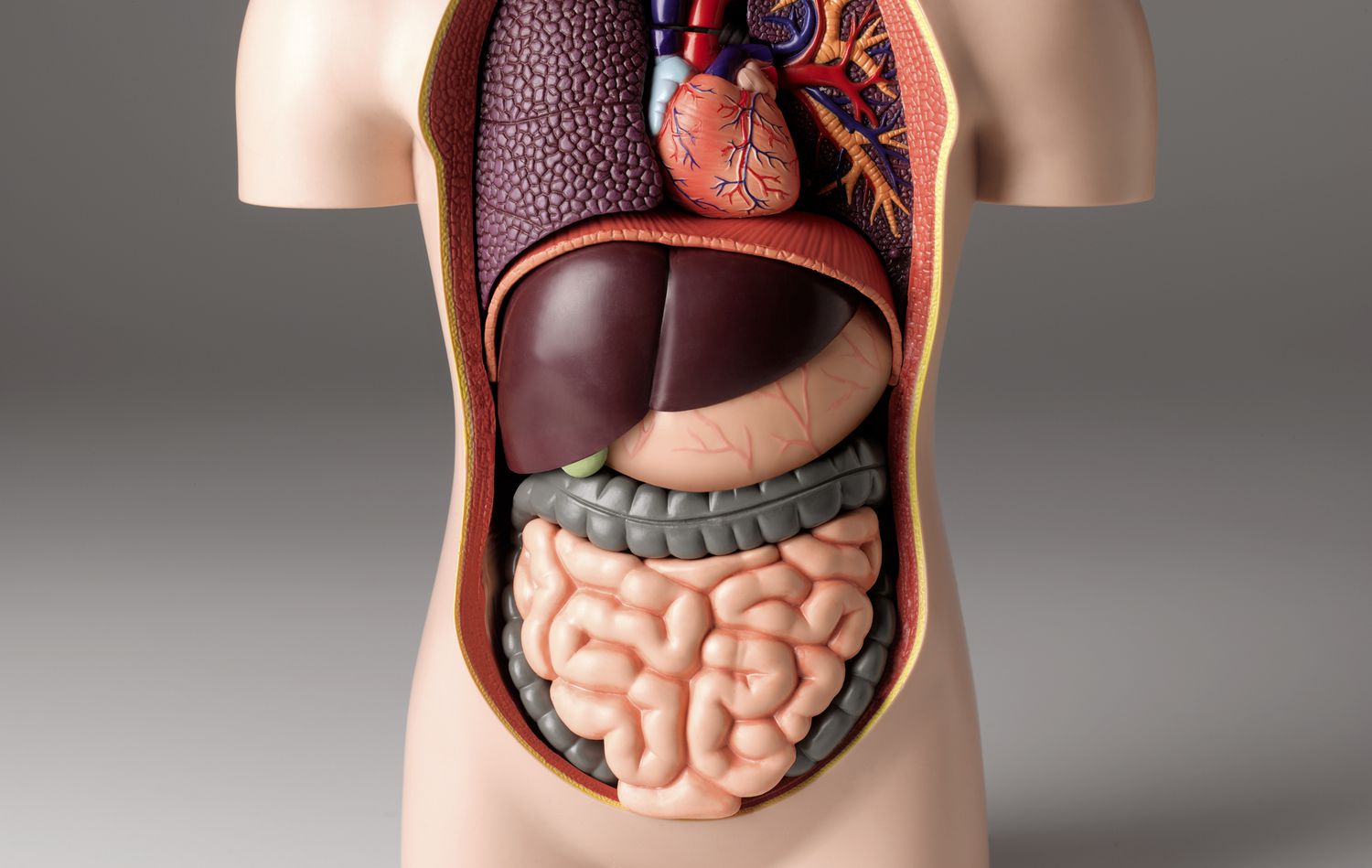
When it comes to the marvels of the human body, few things are as remarkable as the organ system. Comprising multiple interconnected organs working together to perform specific functions, the organ system is a true testament to the complexity and ingenuity of nature.
In this article, we will delve into the fascinating world of the organ system and explore 17 astounding facts that will leave you in awe of the intricacies of our bodies. From the brain’s incredible processing power to the resilience of the immune system, each organ system has its own unique role that contributes to our overall health and well-being.
So, buckle up and get ready to be amazed as we take a journey through the remarkable world of the organ system!
Key Takeaways:
- Our body is like a team of superheroes, with each organ system having its own special powers and responsibilities. They work together to keep us healthy and strong.
- Just like in a big puzzle, all the organ systems fit together perfectly to keep our body running smoothly. When one piece is out of place, it can affect the whole picture.
The human body is made up of several organ systems.
Our bodies are composed of multiple organ systems, each with its own specialized role and function. The major organ systems include the circulatory system, respiratory system, nervous system, digestive system, skeletal system, muscular system, and many others.
The circulatory system is responsible for transporting blood throughout the body.
The circulatory system, also known as the cardiovascular system, consists of the heart, blood vessels, and blood. It plays a crucial role in delivering oxygen, nutrients, hormones, and other essential substances to all parts of the body.
The brain is the control center of the nervous system.
As the command center of the body, the brain coordinates and controls the activities of all the other organ systems. It receives and interprets signals from the senses, processes thoughts and emotions, and regulates various bodily functions.
The respiratory system facilitates the exchange of gases.
The respiratory system, which includes the lungs and airways, enables the intake of oxygen and the removal of carbon dioxide from the body. This vital process allows for the efficient functioning of cells and tissues.
The skeletal system provides support and protection.
The skeletal system, made up of bones, joints, and connective tissues, provides structural support to the body. It also protects vital organs, allows for movement, and serves as a storage site for minerals.
The digestive system breaks down food for energy.
The digestive system processes food and extracts nutrients that the body needs for energy, growth, and repair. It involves various organs such as the stomach, liver, pancreas, and intestines.
The reproductive system is responsible for human reproduction.
The reproductive system in humans allows for the creation of new life. It includes organs such as the ovaries, uterus, and testes, and is responsible for the production of gametes (eggs and sperm) and the development of offspring.
The integumentary system is the body’s largest organ.
The integumentary system, which includes the skin, hair, and nails, acts as a protective barrier against external threats, regulates body temperature, and helps with sensation and vitamin D synthesis.
The endocrine system regulates hormones.
The endocrine system consists of a network of glands that produce and release hormones, which act as chemical messengers to regulate various bodily functions such as metabolism, growth, and reproduction.
The urinary system filters waste from the bloodstream.
The urinary system, comprised of the kidneys, ureters, bladder, and urethra, eliminates waste products and helps maintain the body’s fluid balance and pH levels.
The immune system defends against pathogens.
The immune system plays a vital role in protecting the body against harmful microorganisms and foreign substances. It includes organs, tissues, cells, and molecules that work together to identify, neutralize, and destroy pathogens.
The muscular system allows for movement.
The muscular system, composed of muscles and associated tissues, enables us to move, maintain posture, and generate heat. It works in coordination with the skeletal system to provide the body with strength and flexibility.
The lymphatic system helps maintain fluid balance.
The lymphatic system aids in the removal of excess fluid, waste products, and pathogens from body tissues. It also plays a key role in immune response and the absorption of fats from the digestive system.
The respiratory and cardiovascular systems are interconnected.
The respiratory and cardiovascular systems work closely together to ensure oxygen is delivered to cells and carbon dioxide is removed. Blood transports oxygen from the lungs to the rest of the body, while also carrying waste products back to the lungs to be exhaled.
The liver is a multitasking organ.
The liver performs multiple functions, including detoxification of harmful substances, production of bile for digestion, storage of vitamins and minerals, and synthesis of important proteins.
The pancreas plays a crucial role in digestion and blood sugar control.
The pancreas produces digestive enzymes that help break down carbohydrates, proteins, and fats. It also manufactures insulin and glucagon, hormones that regulate blood sugar levels.
Each organ system relies on the others for optimal functioning.
The organ systems in the human body are interconnected and work together to maintain homeostasis and ensure overall well-being. A disruption in one system can often have an impact on the functioning of other systems.
These 17 astounding facts about the organ system highlight the complexity and importance of our body’s various systems. Understanding how these systems function and interact with each other is crucial for maintaining good health and well-being.
Conclusion
In conclusion, the organ system is a fascinating and intricate network within the human body. It plays a crucial role in maintaining our overall health and well-being. Each of the organ systems has its unique function and works together harmoniously to ensure the proper functioning of our bodies. Understanding the complexity of these systems can give us a greater appreciation for the wonders of the human body. From the brain’s intricate control over our actions to the pumping of blood by the heart, every organ plays a vital role. So, the next time you marvel at the marvels of the human body, remember the incredible organ systems that work tirelessly to keep us alive and thriving.
FAQs
1. What is an organ system?
An organ system is a group of organs that work together to perform specific functions within the body.
2. How many organ systems are there in the human body?
There are eleven organ systems in the human body, including the nervous, circulatory, respiratory, digestive, excretory, skeletal, muscular, integumentary, endocrine, immune, and reproductive systems.
3. What is the most important organ system?
All organ systems are vital for the proper functioning of the body, but the cardiovascular system, responsible for pumping blood and delivering oxygen to the cells, is often considered one of the most crucial.
4. How do organ systems work together?
Organ systems work together through a complex network of communication and coordination. They share resources, exchange signals, and collaborate to maintain homeostasis and carry out necessary bodily functions.
5. Can an organ belong to multiple organ systems?
Yes, some organs serve multiple purposes and can belong to more than one organ system. For example, the pancreas is part of both the endocrine and digestive systems.
6. What happens if one organ system malfunctions?
If one organ system malfunctions, it can disrupt the overall balance and functioning of the body, leading to various health issues and potential complications.
7. Can lifestyle choices impact organ system health?
Absolutely! Lifestyle choices, such as diet, exercise, and stress management, can significantly impact the health and functionality of organ systems. Maintaining a healthy lifestyle is crucial for overall organ system well-being.
Intrigued by the marvels of human biology? Keep exploring with our captivating articles! Unravel the enigmatic world of security analysts, whose vigilance safeguards digital realms. Delve into the integumentary system's astonishing intricacies, your body's first line of defense. Lastly, prepare to be amazed by the nervous system's awe-inspiring feats, orchestrating every thought and movement. Embark on this thrilling journey of discovery and expand your understanding of the incredible machines we call our bodies.
Was this page helpful?
Our commitment to delivering trustworthy and engaging content is at the heart of what we do. Each fact on our site is contributed by real users like you, bringing a wealth of diverse insights and information. To ensure the highest standards of accuracy and reliability, our dedicated editors meticulously review each submission. This process guarantees that the facts we share are not only fascinating but also credible. Trust in our commitment to quality and authenticity as you explore and learn with us.


